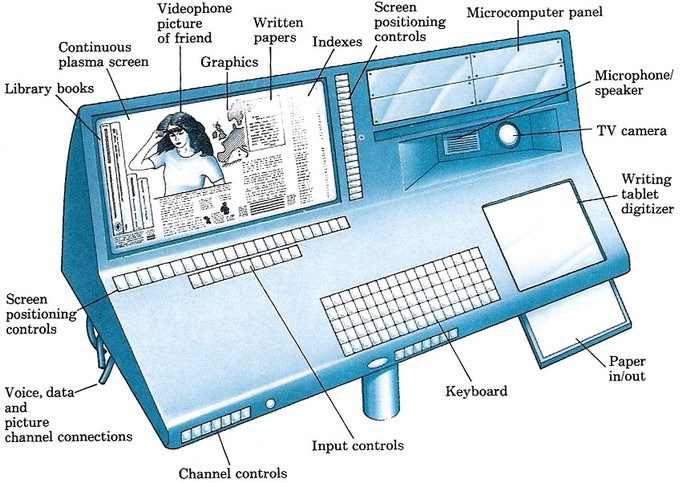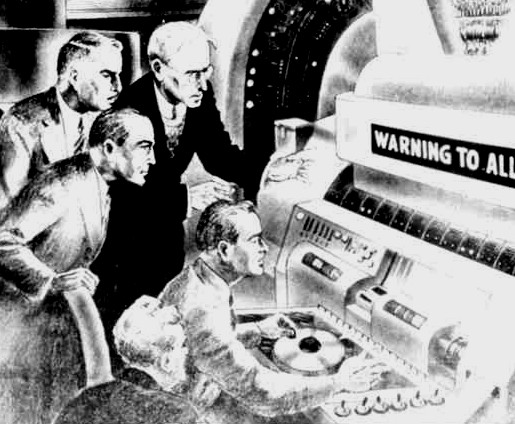Tales of Future Past v2
Main menu
- Home Page
-
Life on Other Worlds
- Life on Other Worlds
- Life on the Planets
- Life on the Moons
- Tales of the Stars
-
Future Living
- Future Living
- Life in 2000 AD
- Leisure
- Shopping
- Drive-In Market
- Cosmetics
- Laundry
- Strikerette
- School: 1999
- Optionics
- Life in 2055
- Future Movies
- Sensorama
- Scopitone
- Radio Pirates
- Weather Control
- Automatic Lumberjack
- Cold Light
- Eternal Youth
- Cryonics
- Suspended Animation
- Space Funeral
- Space Holidays
- Trapped by Television
- Robot Dogs
- Churchill: 1982
- Future House
- Future Kitchen
- Future Food
- Future Work
-
Future City
- Future City
- Skyscraper World
- Tomorrow's Skyline
- Urban Utopias
- World's Fair City
-
Future Transport
- Future Transport
- Rollerball
- Hydrofoil
- Tourism
- Future Liner
- Monorail
- Garden Rail
- Propeller Rail
- Water Rail
- Rocket Trains
- Radio Trains
- Rocket Mail
- Jet Boat
- Desert Liner
- Huge Truck
- Channel Tunnel
- Iron Whale
- Sea Slug
- Sea Slug 2
- Hovercraft
- Ice Field
- Rocket Port
- Vacuum Trains
- Transatlantic Tunnel
- Future Lift
- Travel: 1928
- Concrete Liner
- Teleportation
- Future Car
- Death Rays
Computers

For various reasons, computers don't get much a look in from Future Past and when they do, they're usually along the lines of the HAL 9000. But we're not talking about huge electronic brains with delusions of godhood here. We mean the sort of computers that people would be dealing with in their everyday lives to work, to play, and (all together now!) balance their cheque books. These sort of computers are remarkably rare in Future Past, but they are not unknown.
In most predictions of the future, computers are powerful, mysterious machines with rather vaguely defined functions – and we mean in serious predictions as well as in the sci-

Alarming, but unhelpful.Still, from time to time some authors did come close to the mark. Isaac Asimov's Multivac short stories revolved around a stereotypical electronic brain as conceived in the 1950s. It was gigantic to the point of making a first generation IBM look like an iPad in comparison; omnipotent, omniscient, and... You get the idea.
The difference with Multivac is that it wasn't tended by scientists via some monolithic control panel with a monitor screen the size of a Jumbotron, but instead had terminals spread all over the world in homes, bars, offices, and street corners where people could type in their questions and get suitably pompous, enigmatic replies. In between running the planet and evolving into a suitably tame secular version of God it would even take time out to thrash you at three dimensional chess, if you were suitably masochistic.

A 1978 version of a personal computer circa 2000 AD.
Aside from having a load of remote terminals, though, Multivac was still just a God machine that had to field questions from the congregation. For a much closer pass between the future and Future Past we must turn to Murray Leinster and his 1946 short story "A Logic Named Joe."
This comic tale, written in aggravating dialect style, revolves around machines known as "logics," which look like televisions, except they had keyboards. It was a miracle of 1974 that could not only act as a television, but also as a videophone. In addition, it could keep books, record contracts, serve as a filing system and (all together now!) balance your cheque book. It also hooked up over the phone lines to huge electronic "tanks" filled with "data plates" that allowed you pull up the news, check the weather reports, or to type any question you like into a logic and back came the answer. That's a pretty close pass at "PC," "server," and "Google" for the form.
The fun comes in when one day in August the logics started giving out information that people would rather not be given. That's a pretty close pass, too.

But for the all-